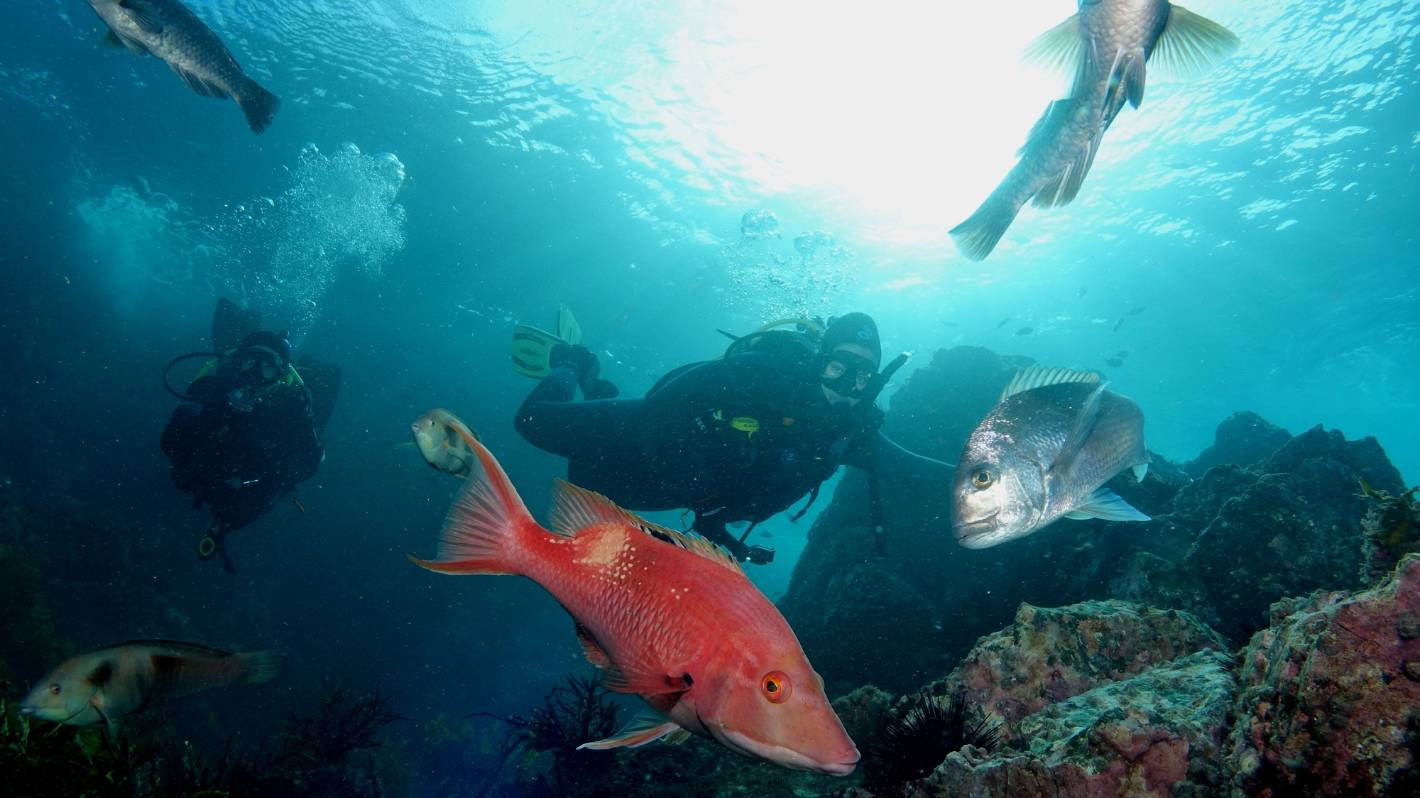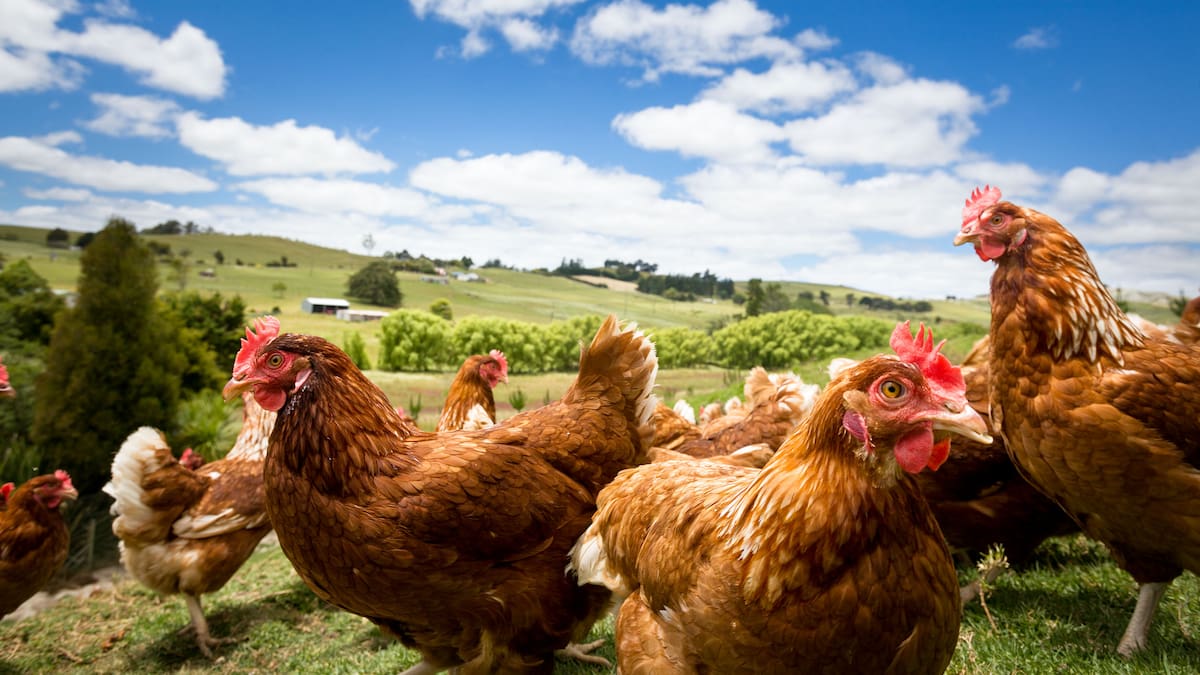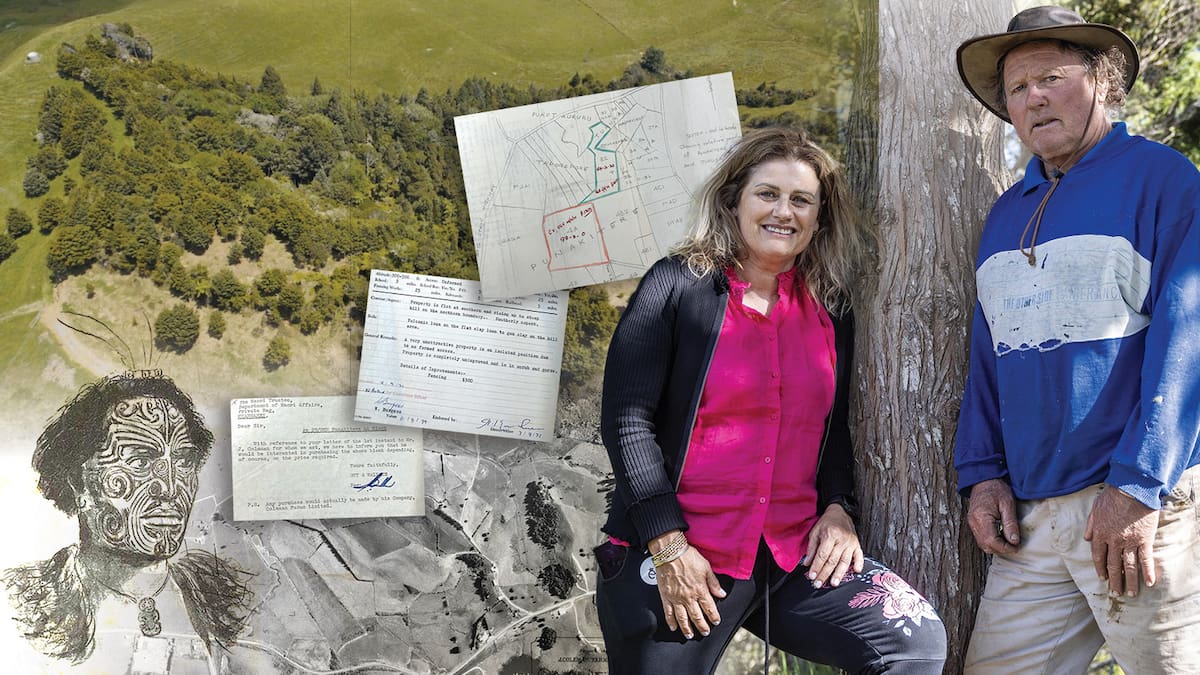PAIHIA DIVE/Stuff
Maunganui Bay or Deep Water Cove in the Bay of Islands has been protected by a rāhui since 2009 but the new rules will permenantly ban fishing from the area. (File photo)
Northland Regional Council is scrambling to cover a $350,000 shortfall and employ two new staff to implement new no-fishing zones imposed by the Environment Court.
In a landmark decision last year, the court ruled fishing should be banned from part of the Bay of Islands and around Mimiwhangata peninsula.
The court upheld appeals against Northland Regional Council’s proposed Regional Plan by Bay of Islands Maritime Park, Forest & Bird and local hapū, who protested a lack of protection for marine life.
This is despite regional councils not previously regulating commercial or recreational fishing.
READ MORE:
* Environment Court forces new no-fishing zone in Northland’s Bay of Islands
* Exotic seaweed infestation leads to fishing, anchoring, ban in Bay of Islands
* Northland iwi battles growing list of environmental issues including an ‘exotic’ seaweed infestation
The decision bans all fishing – including recreational – from Maunganui Bay/Deep Water Cove to Oke Bay in the Bay of Islands, as well as around Mimiwhangata peninsula, northeast of Whangārei.
Both areas already have some form of restriction, while another part of the Bay of Islands also has fishing restrictions after the discovery of superspreader seaweeds.
Denise Piper/Stuff
Mimiwhangata Coastal Park, northeast of Whangārei, is the second area where all fishing will be banned. (File photo)
Commercial bulk harvesting of fish is also prohibited in a new area around Rakaumangamanga/Cape Brett, to a depth of about 100m.
Exceptions to the no-take rules include kina harvest, and activity involved with restoration, research and tikanga, such as customary fishing.
At the time, the regional council admitted details of the new rules were still to be worked out, including when the bans would start.
But a report to the full council late last month shows the new bans need to be implemented in the next year, including engaging with affected people.
Staff from across the council have already been pulled into a Moana Ora steering group. It is unclear what impacts this will have on their existing work.
The council agreed to urgently fund $350,000 in 2023-24, including employing a manager and a person for compliance monitoring and advocacy.
The unbudgeted expense will be covered by salary savings across the council, or gains from interest, dividends and rental income.
However, the council wants to give careful consideration to all funding options through its Long Term Plan consultation next year.
Abigail Dougherty/Stuff
Goat Island Marine reserve in Auckland has had issues with poachers fishing inside the marine reserve despite it being illegal and ruining the marine life in the Hauraki Gulf. (Video first published December 23, 2021)
It is also actively engaging with tangata whenua to discuss how the marine protected areas could be co-managed.
But while local hapū Ngati Kuta ki Te Rawhiti and Te Uri O Hikihiki argued for protections to be put in place, iwi groups opposed the court’s decision, the council report said.
Ngātiwai Trust Board and Ngāpuhi Rūnanga were either partly or fully against the decision, saying it could lead to a proliferation of no-fishing zones, and it undermines Treaty of Waitangi Fisheries Claims.
In addition, the New Zealand Sport Fishing Council argued the Fisheries Act – which includes Fisheries Officers – was the more appropriate legislation to be used for marine protection.



